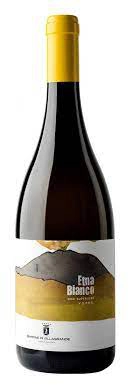
Sicily
Sicily is an Italian island located in the Mediterranean Sea, just off the "toe" of the Italian peninsula. It is the largest island in the Mediterranean and is home to a rich and diverse terroir and wine culture. Sicily has a long and storied history of winemaking, with evidence of viticulture dating back to the 8th century BC. The island has been home to many different cultures over the centuries, including the Greeks, Romans, Arabs, and Normans, all of whom have left their mark on the island's wine culture. Today, Sicily is one of Italy's most important wine regions, producing a wide range of styles from both indigenous and international grape varieties.
Sicily is home to a wide range of both indigenous and international grape varieties. The most widely planted indigenous varieties are Nero d'Avola, Frappato, and Catarratto in the west part, and Nerello Mascalese, Nerello Cappuccio and Carricante in Mount Etna and Faro. International varieties such as Chardonnay, Cabernet Sauvignon, and Merlot are also widely planted. Sicily produces a wide range of styles, from light and fruity whites to full-bodied reds. The island is also home to some of Italy's most famous dessert wines, such as Marsala and Passito di Pantelleria.
Sicily is home to some of Italy's most renowned winemakers, including Planeta, Tasca d'Almerita, and Donnafugata. These producers are known for their high-quality wines, which have earned them international acclaim.
Sicily is home to the highest active volcano Mount Etna, which is one of the most important subregions of the island.



















